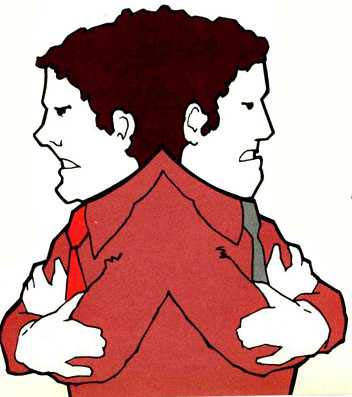
AM Clear-Channel Proposal
Dear Sir:
With interest and a sense of deep frustration, I read in The New York Times that the Federal Communications Commission has decided to reject the concept of a boost in power for our country's AM clear-channel stations and to remove the moratorium on the issuance of licenses on those frequencies which, up until this decision, aptly were characterized as clear channels.
I am not a member of the broadcasting community. I am a lawyer (no broadcasting clients) who happens to enjoy listening to distant stations on the AM radio band.
Until last year, I was a lifelong resident of Michigan and grew up on a small farm 30 miles from Grand Rapids. As you may know, Grand Rapids has a number of radio stations with at least one "regional" AM station, WOOD-AM, 1300 kHz. At night, not one AM station from Grand Rapids can be received in a listenable state.
There is too much interference. The farm is only 10 miles from the transmitter of WPLB-AM, Greenville, Michigan, and even that station can be received only occasionally through the local channel "hash." In contrast, the following clear-channel stations provided excellent service: WSM, Nashville; WMAQ, Chicago; WLW, Cincinnati; WGN, Chicago; WJR, Detroit; WABC, New York; WBBM, Chicago; WCCO, Minneapolis; WHAS, Louisville; WWL, New Orleans; WLS, Chicago; KDKA, Pittsburgh; WBZ, Boston; WHO, Des Moines; WWWE, Cleve land; KMOX, Saint Louis, and WHAM, Rochester.
Perhaps only half of these stations delivered a listenable signal through out the nighttime, but that is still far superior to the performance from our local stations.
These clear-channel stations brought the world home to the farm. New York, Chicago, and New Orleans were more than just names on a map. These and other cities came alive with voices and music. In broad terms, AM clear-channel stations define the national identity in terms of its regional parts, while local stations tend to perpetuate parochialism. Clear-channel stations serve to set industry standards of professionalism, while professional ism is a corner-to-be-cut at the local level if the budget dictates or lack of competition permits.
The situation is not restricted to this one location in Michigan. I drive be tween New York City and Michigan several times a year and have found that there is virtually no listenable lo cal AM service along vast stretches of this route, day or night. I look forward to nightfall so that I can tune in one of the familiar clear-channel stations for companionship through the night hours. It is not far fetched to suggest that removal of this companionship factor from the nation's nighttime motorists could have an adverse impact upon highway safety.
Adding local stations to the "clear channels" can result only in an overall decrease in service. While I was a student at Michigan State University, I lived five miles from the transmitter of WKAR-AM which operated with 10,000 watts of power throughout the day, signing off the air at dusk. WKAR shared the channel with WWL in New Orleans. During the quarter-hour pre ceding signoff, particularly between the months of October and March, interference from WWL seriously impaired the pleasure of listening to WKAR. Traveling further than 25 miles from Lansing, it was impossible to hear either station because of mutual interference. Following each signoff of WKAR-AM, WWL becomes a strong, clear and listenable station.
The proposal to license several local stations on each clear channel for full time operation would mean more interference, not relief, with nightfall. Stations like WWL would be forever out of the reach of large portions of the nation's AM radio audience. If you add local stations to the clear channels, the immediate locality may benefit from local service though nighttime interference will still be present. However, listeners of the clear-channel stations for hundreds of miles around will lose the only service they will ever have in the "hash" that will result.
I cannot believe that it is in the best interest of the people of this nation for the Commission to take this proposed action. I believe the proposed action would result in a net decrease in the quality of AM broadcasting and a net decrease in the number of people listening to AM radio. If approved, it will be increasingly difficult to hear region al news and views directly from the points of origin and to tune a strong, steady companion for a long night's drive.
Large areas of the nation will be deprived of existing clear-channel nighttime service in order that a few localities might lay claim to a local station. This proposal is clearly beneficial only to those applicants who seek lo cal licenses on the clear channels. I hope that the Commission will reconsider this proposal and reject it on the grounds that it is not in the best interest of the people of this nation.
Perhaps, then the Commission can re-examine its decision respecting a power increase for the clear-channel stations unimpeded by the lobbying efforts of the numerous applicants for local stations on our nation's clear channels.
- Lawrence D. Swift; New York, N.Y.
(adapted from Audio magazine, May 1979)
Also see: Forum by Leonard Feldman (Jan. 1986)
= = = =